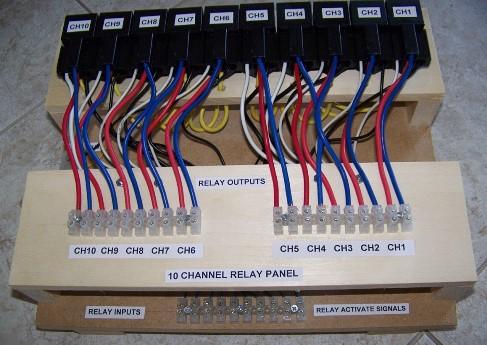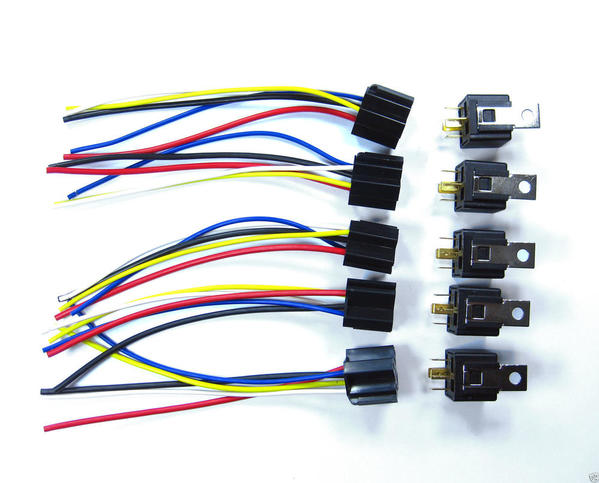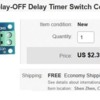Just to throw it out there, automotive relays have a couple downsides for layout use. These never stopped me from using them, but folks should be aware. First, of course, they are DC, and as such they are likely to chatter if used with AC power typically used for O-gauge systems. One could add a diode and small capacitor to each relay for AC use, or simply run the relay panel off 12VDC as the OP does. A second issue is that most 12 volt automotive relays are designed for high current but low voltage. I've never seen one fail passing 18VAC, but it is beyond what they are designed for. Automotive relays should defiantly not be used for mains level AC, as that is well beyond the contact ratings on automotive relays.
All that said, I'm assuming here that the use of 25 Amp relays here is simply because they are inexpensive and come with pig-tail sockets, rather that because 25 amp circuits are needed. If a 10 Amp limit is enough another solution may be a relay module board such as this one:

This board gives you 16 relays for under $20, shipped. Aside from the current being lower the board requires 5VDC supply and control. It wouldn't matter if one is just piggybacking these relays off the ones inside a TIU, but for other uses, these boards also come with opto-isolators for each channel, preventing any damaging spikes from getting back into control electronics used to trigger the relays.
JGL











